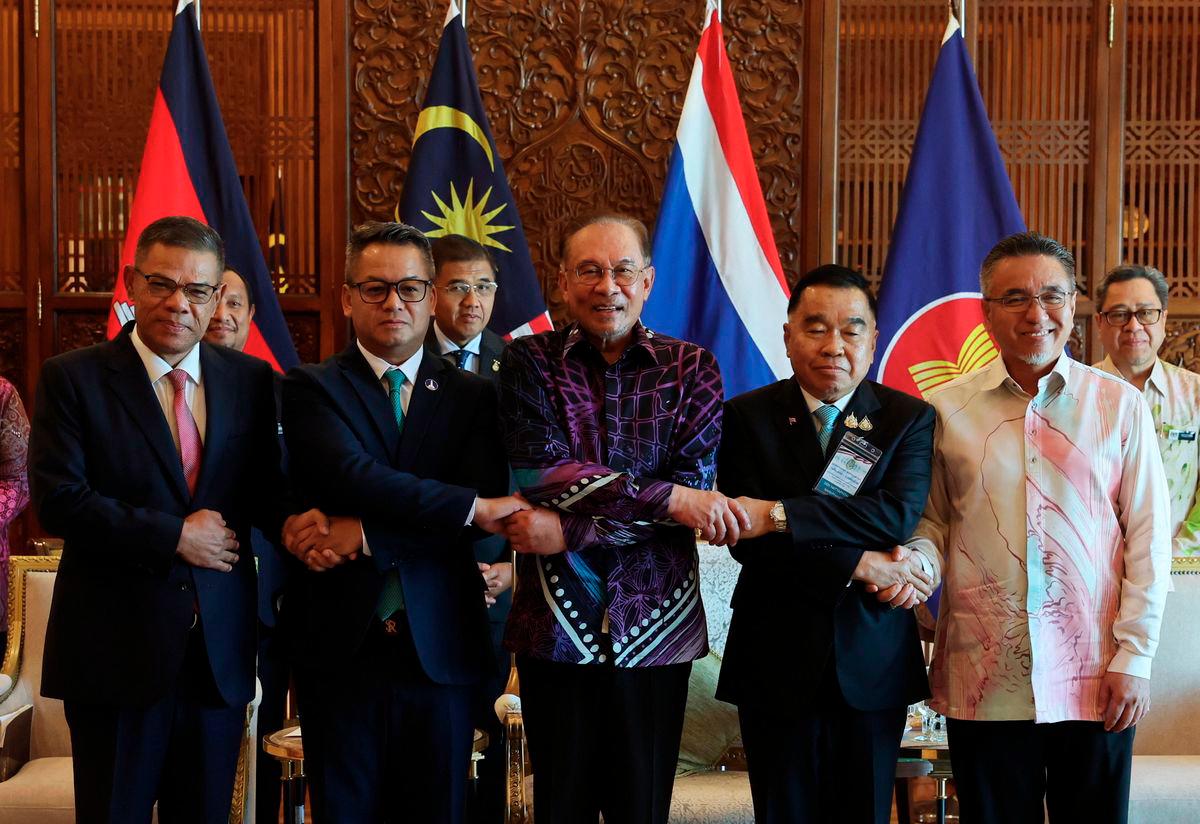PETALING JAYA: Deep-rooted divisions and political instability in Thailand could hinder efforts to end the decades-old insurgency in its south, analysts warn – even as Malaysia’s Asean chairmanship gives Prime Minister Datuk Seri Anwar Ibrahim a rare opening to push for peace.
International Islamic University Malaysia international relations expert Assoc Prof Dr Mohd Yazid Zul Kepli said Malaysia should position itself as a facilitator rather than an intervener to avoid breaching Asean’s principle of
non-interference.
“Malaysia can host talks, provide neutral venues and encourage dialogue if both Thailand and insurgent representatives agree,” he said.
“The emphasis should be on voluntary engagement, not imposing solutions. This will still be difficult as the conflict has been ongoing for a long time.”
Yazid said Malaysia could also use upcoming Asean meetings to hold informal side discussions, invite peace process experts and integrate the conflict into wider conversations on regional security.
“These efforts can help build trust between the two sides, framing it as a security concern that affects the whole region, not just Thailand,” he said.
“Malaysia can promote dialogue, encourage confidence-building, and provide platforms for discussion, but it cannot force negotiations or interfere in Thailand’s internal affairs without consent.”
He said Anwar’s track record in personal diplomacy, including his role in mediating the recent Thailand–Cambodia ceasefire, lends credibility to Malaysia’s offer.
On Aug 9, Anwar said Malaysia was ready to mediate the conflict in southern Thailand and to help end tensions.
While calling it an internal matter for Bangkok, he said Thai authorities had shown willingness to continue efforts to stop violence on both sides.
Universiti Teknologi Malaysia political analyst Assoc Prof Dr Mazlan Ali expressed similar confidence in Anwar’s ability to handle sensitive regional issues, citing his involvement in peace efforts in Myanmar, southern Thailand and the Thai–Cambodian dispute.
“Anwar is trusted not only in Asean but also on the world stage,” Mazlan said.
“US President Donald Trump acknowledged his diplomatic skills in the Thai–Cambodian conflict. He is also seen as a charismatic and trustworthy leader in handling complex issues such as Palestine.”
Mazlan said regional states have more confidence in Malaysia’s foreign policy direction under Anwar than in previous administrations.
“There is no risk in Malaysia’s role as a peace mediator. In fact, it enhances global respect for the country because our foreign policy is flexible and non-aligned.”
Nusantara Academy of Strategic Research senior fellow Prof Dr Azmi Hassan said Bangkok also trusts Malaysia to remain neutral but warned that the main obstacle lies in the Thai government’s relationship with the Barisan Revolusi Nasional (BRN), an Islamic militant group in southern Thailand.
“BRN does not represent the entire spectrum of Islamic militancy and people in the south. It is only a small part of a much larger issue,” Azmi said.
“Malaysia has leverage, as shown in our role in creating the Bangsamoro in the Philippines. But that case was different as in Mindanao, the separatist group represented the entire militant movement.
“In southern Thailand, BRN does not speak for all militant groups or the entire Muslim community.”
Azmi said Bangkok has few options but to work with Malaysia, given their shared border and Malaysia’s strong ties with the Muslim population in the region, many of whom feel closer to Malaysia than to the Thai capital.
He added that Thailand’s political turbulence further complicates the peace process.
“Even their prime minister is serving in an interim capacity. Negotiations between Bangkok and BRN have been inconsistent, starting and stopping depending on who is prime minister at the time.
“We want to see the conflict resolved, but progress remains difficult.”
With several high-level Asean meetings scheduled in the coming months, observers say Malaysia could use its role as chair to quietly prepare the ground for renewed talks, but lasting peace will demand patience, trust and sustained political will from all sides.









